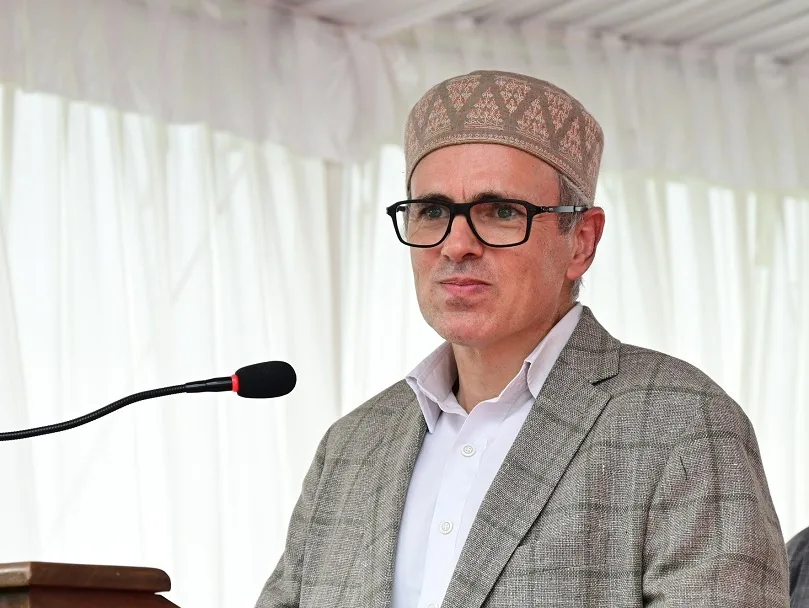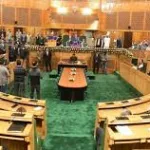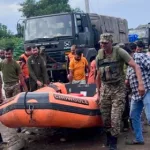Srinagar, Aug28:Chief Minister Omar Abdullah on Thursday warned that Jammu and Kashmir cannot afford to live in fear of floods every monsoon, saying even two days of rainfall had tested the administration’s preparedness, despite years of promises and post-2014 assurances.
“After 2014, we promised safety. But even two days of rain put our preparedness to the test,” Omar told reporters while reviewing arrangements for the upcoming Eid-e-Milad-un-Nabi (SAW) at DargahHazratbal. “God forbid it rains for four days, we’ll be staring at another 2014-like disaster.”
The Chief Minister, who visited Tawi Bridge and adjoining areas, said that while water levels have now receded, the situation had once again exposed structural gaps. “At that time, after tolerating for six or seven days, on the eighth day we were devastated. Here, we were able to tolerate for two days with difficulty,” he said.
Earlier in the day, the Chief Minister chaired a high-level meeting at Hazratbal Shrine to review preparations for Eid-e-Milad-un-Nabi (SAW), one of the most significant days in the religious calendar. Emphasising crowd management, uninterrupted electricity, and sanitation, he directed officers to ensure that devotees face no inconvenience. He also stressed the importance of readiness amid erratic weather and structural vulnerabilities exposed by the recent rainfall.
He directed officials to ensure adequate facilities during the rush days. “There should be proper control and parking, and shuttle buses for people who come from remote areas and park far away. There should be no electricity problem, no shortage of water, cleanliness, mobile toilets, and medical camps. All these matters were discussed today,” he said.
Once the religious events conclude, Omar said, a comprehensive review will be conducted to assess the implementation of post-2014 flood mitigation measures.
“I will sit with the officers and try to find out what we actually did after 2014. Where did the money go? How much was the flood channel’s carrying capacity increased? How much dredging of the Jhelum was completed? And wherever there were shortcomings, we will have to fix them,” he said.
Referring to the recent downpour, Omar said Jammu was able to drain excess water quickly, but Srinagar’s geography made it vulnerable. “There was a lot of rain in Jammu and Kashmir on both sides. God saved us. If it had rained for another day or two, we would have had to face a lot of difficulties. In Jammu water recedes very quickly; here it takes time,” he said.
Stating that there is need for structural reforms, Omar said that J&K cannot live like this every year. “The carrying capacity of our channels has to be enhanced, dredging has to be completed, and where money has been spent, we need to see whether the promised safety has actually reached the ground.”
The Chief Minister said the immediate focus remains on ensuring smooth conduct of the religious events, but long-term preparedness against floods cannot be delayed. “These big days will be over soon. After that, I will sit with the officers and assess what we did after 2014. We cannot afford to repeat the same mistakes,” he said.






